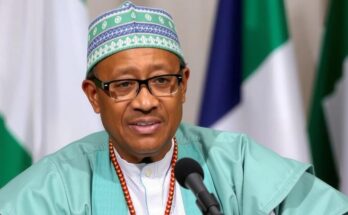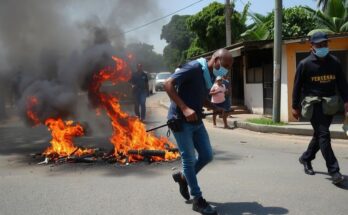Tunisians voted in a presidential election where President Kais Saied faces few challengers due to the imprisonment and exclusion of prominent opposition figures. The election reflects a broader context of political unrest and economic hardship in Tunisia since the Arab Spring. Saied’s previous consolidation of power raises questions about the future of Tunisian democracy as voters navigate their discontent among limited electoral options.
Tunisia conducted its presidential election amidst a political landscape marked by a lack of viable opposition against President Kais Saied, who stands poised to secure re-election. With many of his main rivals either incarcerated or excluded from the electoral process, the election appears to offer little hope for change in leadership. The vote occurs five years after Saied’s initial ascent to power, which was propelled by an anti-establishment sentiment following widespread protests that led to the ousting of President Zine El Abidine Ben Ali in 2011, the first leader to fall during the Arab Spring protests. Historically, Tunisia was celebrated as the success story of the Arab Spring, establishing a democratic constitution and earning a Nobel Peace Prize for its commitment to political compromise. However, these achievements have been undermined by economic struggles and intensified political tensions, with Saied’s rise to the presidency characterized by promises of a transformative path for the nation. In the lead-up to this election, Saied made significant alterations to Tunisia’s political framework in July 2021, including declaring a state of emergency, dismissing his prime minister, and suspending parliament—actions that were regarded by many as a coup d’état. Voters later endorsed a new constitution, although the subsequent arrest of numerous critics—including journalists, lawyers, and public figures—as well as rampant political apathy has cast doubt upon the legitimacy of the electoral process. Among the few candidates approved to run for the presidency are Saied himself, Zouhair Maghzaoui, a veteran politician, and Ayachi Zammel, a businessman with a troubled history of voter fraud allegations. Prominent opposition figures, notably Rached Ghannouchi of the Ennahda party and Abir Moussi of the Free Destourian Party, remain absent from the race due to imprisonment or other criminal charges related to politically motivated activities. Consequently, numerous political factions have denounced the election as a farce and called for a boycott. The electoral backdrop is characterized by a background of economic malaise, exemplified by rising unemployment, which currently registers at 16%, particularly impacting the youth. Despite Saied’s pledge to revitalize the economy, negotiations for international financial assistance have stalled, exacerbated by reluctance to adhere to stringent conditions set forth by entities like the International Monetary Fund. Furthermore, the ongoing plight of Tunisian migrants and increased hostility towards sub-Saharan African migrants further illustrate the socio-political challenges faced by the country. Internationally, Tunisia maintains relationships with its traditional western partners while exploring new alliances, particularly under Saied’s administration, which favors national sovereignty. He has asserted a commitment to prevent Tunisia from serving solely as a means for Europe to manage migration, despite securing agreements on migration management with European nations. As Tunisians head to the polls, the results will signify both public sentiment toward Saied’s consolidation of power and the future of the country’s fractured democracy—while the prospects of meaningful opposition remain bleak.
The context for Tunisia’s current presidential election is steeped in the aftermath of significant political upheaval that began with the Arab Spring in 2011. This movement led to the downfall of autocratic regimes across the region, with Tunisia initially emerging as a beacon of democratic promise. However, the ongoing economic struggles and political conflicts have hindered this progress. President Kais Saied’s governance since 2019 has been marked by controversial moves to centralize power, culminating in a new constitution ratified amidst widespread discontent and fears regarding democratic decline. Moreover, Saied’s administration has faced denunciations for its harsh crackdowns on dissent, with opposition candidates largely silenced or excluded from political participation, framing this election as a pivotal moment for Tunisia’s democratic trajectory.
In conclusion, the presidential election in Tunisia highlights a critical juncture for the nation, revealing the complexities of political power and public sentiment under President Kais Saied. While many perceive the election as geared towards re-establishing Saied’s authority amid a sidelined opposition, the economic challenges and sociopolitical environment remain urgent issues that demand attention. The outcomes of this election will undoubtedly resonate beyond Tunisia’s borders, reflecting ongoing struggles in the region against autocratic governance and demanding for true democratic engagement.
Original Source: www.euronews.com




